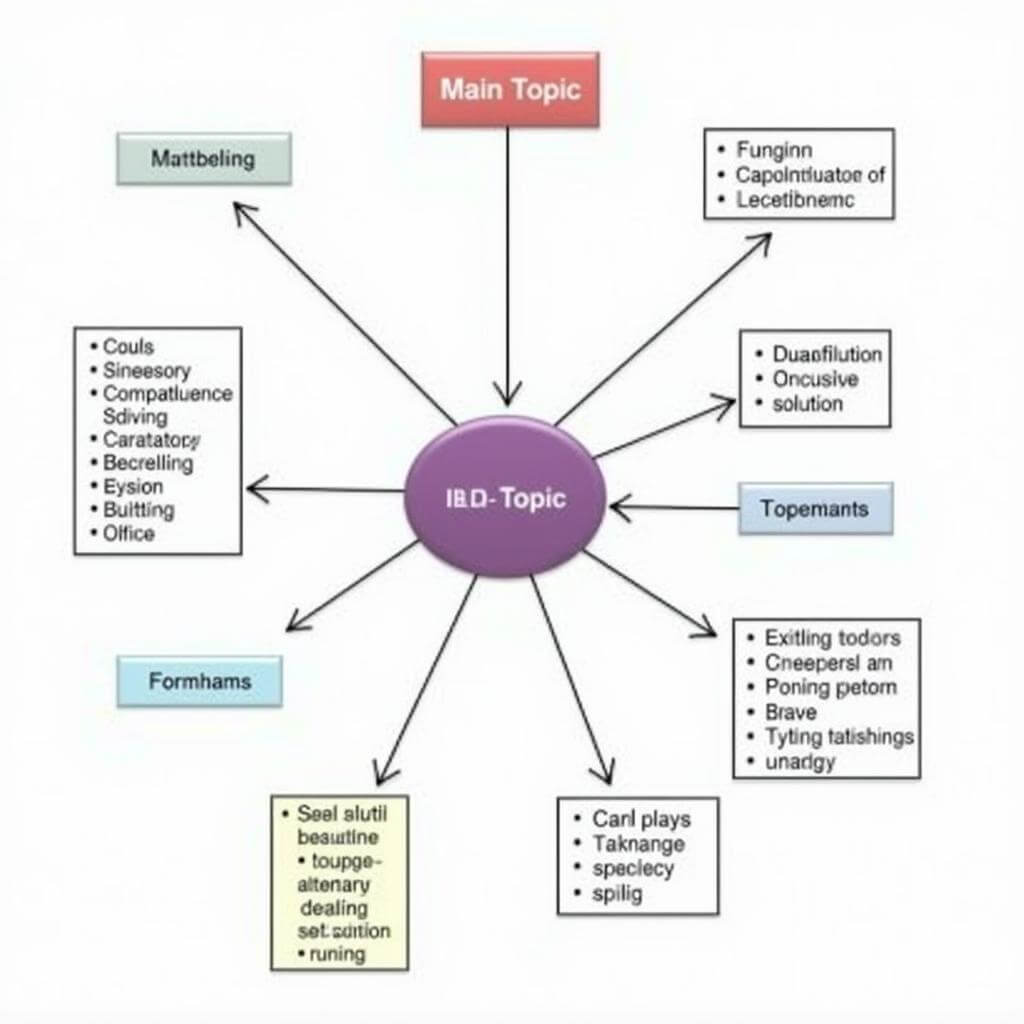Achieving a Band 8 in IELTS Speaking is a challenging but attainable goal for many test-takers. This comprehensive guide will provide you with expert strategies and practical tips to help you reach this coveted score. By focusing on key areas such as fluency, vocabulary, pronunciation, and coherence, you can significantly improve your speaking performance and boost your chances of success.
Nội dung bài viết
- Understanding the IELTS Speaking Test
- Fluency and Coherence: Speak Smoothly and Logically
- Lexical Resource: Expand Your Vocabulary
- Grammatical Range and Accuracy: Master Complex Structures
- Pronunciation: Refine Your Accent and Intonation
- Advanced Strategies for Band 8 Success
- 1. Develop Topic-Specific Vocabulary
- 2. Master the Art of Elaboration
- 3. Use Idiomatic Language Naturally
- 4. Improve Your Critical Thinking Skills
- 5. Practice Active Listening
- 6. Develop Strategies for Handling Difficult Questions
- Mock Tests and Self-Evaluation
- Mindset and Confidence
- Conclusion
- FAQ
- How long does it typically take to achieve Band 8 in IELTS Speaking?
- Can I achieve Band 8 if English is not my first language?
- How important is accent in scoring Band 8?
- Should I memorize answers for the IELTS Speaking test?
- How can I practice speaking if I don’t have a speaking partner?
Understanding the IELTS Speaking Test
Before diving into specific strategies, it’s crucial to understand the structure and expectations of the IELTS Speaking test. The test consists of three parts:
- Introduction and Interview (4-5 minutes)
- Individual Long Turn (3-4 minutes)
- Two-way Discussion (4-5 minutes)
Examiners assess your performance based on four criteria:
- Fluency and Coherence
- Lexical Resource (Vocabulary)
- Grammatical Range and Accuracy
- Pronunciation
To achieve a Band 8, you need to demonstrate excellence in all these areas. Let’s explore each criterion in detail and discuss strategies to improve your performance.
Fluency and Coherence: Speak Smoothly and Logically
Fluency is the ability to speak smoothly without unnecessary pauses or hesitations. Coherence refers to the logical organization of your ideas. Here are some tips to enhance your fluency and coherence:
- Practice speaking English daily, even if it’s just talking to yourself.
- Use linking words and phrases to connect your ideas smoothly.
- Develop your ideas fully, providing examples and explanations.
- Learn to paraphrase and use fillers effectively to avoid long pauses.
Lexical Resource: Expand Your Vocabulary
A rich vocabulary is crucial for achieving Band 8. Here’s how you can improve your lexical resource:
- Learn and use idiomatic expressions appropriately.
- Incorporate advanced vocabulary related to common IELTS topics.
- Practice using synonyms and antonyms to avoid repetition.
- Read widely to expose yourself to diverse vocabulary in context.
Remember, it’s not just about knowing many words, but using them accurately and appropriately. As Dr. Emily Watson, a renowned IELTS expert, often says, “It’s better to use simpler words correctly than to misuse complex vocabulary.”
How to achieve band 8 in IELTS speaking test provides more in-depth strategies for expanding your vocabulary effectively.
Grammatical Range and Accuracy: Master Complex Structures
To score high in grammar, you need to demonstrate a wide range of grammatical structures with a high degree of accuracy. Here’s how:
- Learn and practice using complex sentence structures.
- Master conditional sentences and reported speech.
- Use a variety of tenses appropriately.
- Pay attention to subject-verb agreement and word order.
When practicing, focus on accuracy first, then work on increasing your speed. As you become more comfortable with complex structures, incorporating them into your speech will become more natural.
Pronunciation: Refine Your Accent and Intonation
Clear pronunciation is essential for achieving Band 8. Here are some strategies to improve:
- Focus on individual sounds that are problematic for speakers of your native language.
- Practice word stress and sentence stress patterns.
- Work on your intonation to convey meaning effectively.
- Use connected speech features like linking and reduction.
Improving pronunciation for difficult sounds offers specific techniques to overcome common pronunciation challenges.
Advanced Strategies for Band 8 Success
Now that we’ve covered the basics, let’s explore some advanced strategies to push your speaking skills to Band 8 level:
1. Develop Topic-Specific Vocabulary
Research common IELTS topics and build a bank of advanced vocabulary for each. This will allow you to speak more precisely and impressively on a wide range of subjects.
2. Master the Art of Elaboration
When answering questions, don’t just give short responses. Learn to elaborate on your answers by providing reasons, examples, and personal experiences. This demonstrates your ability to communicate complex ideas effectively.
3. Use Idiomatic Language Naturally
Incorporating idiomatic expressions can significantly enhance your speaking performance. However, it’s crucial to use them naturally and in the right context. Using idiomatic phrases to sound natural provides excellent guidance on this topic.
4. Improve Your Critical Thinking Skills
For Part 3 of the speaking test, you’ll need to discuss abstract ideas and offer opinions on complex issues. Develop your critical thinking skills by regularly engaging in debates or discussions on current affairs.
 Enhancing critical thinking skills for IELTS Speaking
Enhancing critical thinking skills for IELTS Speaking
5. Practice Active Listening
Being a good listener is crucial for performing well in the IELTS Speaking test. It helps you understand questions fully and respond appropriately. Practice active listening in your daily conversations and when watching English-language media.
6. Develop Strategies for Handling Difficult Questions
Learn techniques for dealing with questions you find challenging. This might include asking for clarification, buying time to think, or skillfully steering the conversation to areas where you feel more confident.
How to handle follow-up questions offers valuable insights into managing challenging aspects of the speaking test.
Mock Tests and Self-Evaluation
Regular practice with mock tests is essential for achieving Band 8. Record your responses and evaluate them critically. Pay attention to:
- The range and accuracy of your vocabulary and grammar
- Your ability to speak fluently and coherently
- The clarity of your pronunciation
- Your skill in developing and supporting ideas
Consider seeking feedback from English teachers or language exchange partners to get different perspectives on your performance.
Mindset and Confidence
Finally, remember that confidence plays a significant role in your speaking performance. Dr. Michael Chen, an IELTS preparation specialist, emphasizes, “Half the battle is won in your mind. Believe in your abilities and approach the test with a positive attitude.”
Key strategies to improve IELTS band score provides additional tips on developing the right mindset for IELTS success.
 Building confidence for IELTS Speaking success
Building confidence for IELTS Speaking success
Conclusion
Achieving Band 8 in IELTS Speaking requires dedication, consistent practice, and a strategic approach. By focusing on improving your fluency, expanding your vocabulary, refining your grammar, and perfecting your pronunciation, you can significantly enhance your speaking skills. Remember to also develop your critical thinking abilities, practice active listening, and maintain a confident mindset. With these strategies and consistent effort, you’ll be well on your way to achieving your goal of Band 8 in IELTS Speaking.
FAQ
How long does it typically take to achieve Band 8 in IELTS Speaking?
The time required varies depending on your starting level and the intensity of your preparation. On average, dedicated students may need 3-6 months of focused practice to reach Band 8 from a Band 6.5 or 7 starting point.
Can I achieve Band 8 if English is not my first language?
Absolutely! Many non-native speakers achieve Band 8 and even Band 9. It requires dedication, consistent practice, and effective strategies, but it is certainly attainable.
How important is accent in scoring Band 8?
Accent is less important than clarity and intelligibility. Focus on clear pronunciation and effective use of stress and intonation rather than trying to mimic a specific accent.
Should I memorize answers for the IELTS Speaking test?
Memorizing answers is not recommended and can actually lower your score. Instead, focus on developing your ability to speak spontaneously on a wide range of topics.
How can I practice speaking if I don’t have a speaking partner?
You can practice alone by recording yourself, talking to yourself, or using language exchange apps. Also, consider online tutoring or joining IELTS preparation groups for speaking practice.


